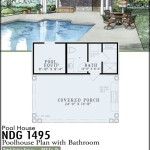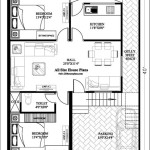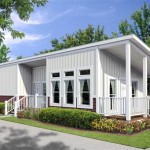Essential Aspects of Value Engineering House Plans
Value engineering is an essential process in house plan design that helps homeowners optimize their budgets while ensuring they get the most value for their money. By carefully considering each aspect of the plan, homeowners can identify areas where costs can be reduced without compromising the quality or functionality of the home. ### 1. Design with Flexibility Designing with flexibility allows for changes in the future without significant cost implications. Incorporating multiple use spaces, such as a den that can double as a guest room, or a kitchen that can accommodate an expanded dining area, provides adaptability as needs evolve. ### 2. Optimize Space Utilization Efficiently utilizing space can reduce the overall footprint of the home, leading to savings in both construction costs and ongoing utility bills. Consider multi-functional rooms, vertical storage solutions, and natural lighting to maximize space utilization without sacrificing comfort. ### 3. Select Cost-Effective Materials Choosing materials wisely can significantly impact the budget. Explore options such as composite decking, vinyl siding, and energy-efficient windows that offer durability and performance at a lower cost compared to traditional materials. ### 4. Simplify Rooflines and Exterior Finishes Complex rooflines and elaborate exterior finishes can add to construction costs. Opt for simpler roof designs, such as gable or hip roofs, and consider cost-effective siding materials like vinyl or fiber cement. ### 5. Design for Energy Efficiency Incorporating energy-efficient features into the house plan not only reduces ongoing utility costs but can also enhance the value of the home. Consider proper insulation, efficient HVAC systems, and energy-saving appliances to minimize energy consumption. ### 6. Minimize Waste and Optimize Material Usage Careful planning can reduce material waste and optimize usage. Use standardized dimensions for windows, doors, and other components to minimize off-cuts and costly custom orders. Consider modular design principles that allow for simplified assembly and reduced material waste. ### 7. Leverage Technology for Planning and Cost Control Advanced design software and online platforms can assist in value engineering efforts. These tools provide accurate cost estimates, allow for virtual walkthroughs to identify potential inefficiencies, and facilitate collaboration between architects, engineers, and contractors. ### Conclusion Value engineering house plans requires careful consideration of design, materials, and construction methods to maximize value and minimize costs. By implementing these essential aspects, homeowners can create a home that meets their functional and financial needs without compromising quality or comfort. A well-executed value engineering process ensures that every dollar invested in the house plan translates into long-term savings and satisfaction.
Value Engineering Housing Design Matters

Value Engineering Housing Design Matters

Home Builders Go Beyond Value Engineering Pro Builder

Value Engineered Archives Design Basics

Value Engineering By Paul Pare Associates

Design Affects Cost Value Engineering Basics
Value Engineering Services For Construction Netherlands

Value Engineering For Construction A 6 Step Methodology Gordian
Value Engineering Of Slab On Grade Foundation Evstudio

Advanced Framing Ove Optimum Value Engineering Greg Lavardera Modern House Plans Construction Home
Related Posts








